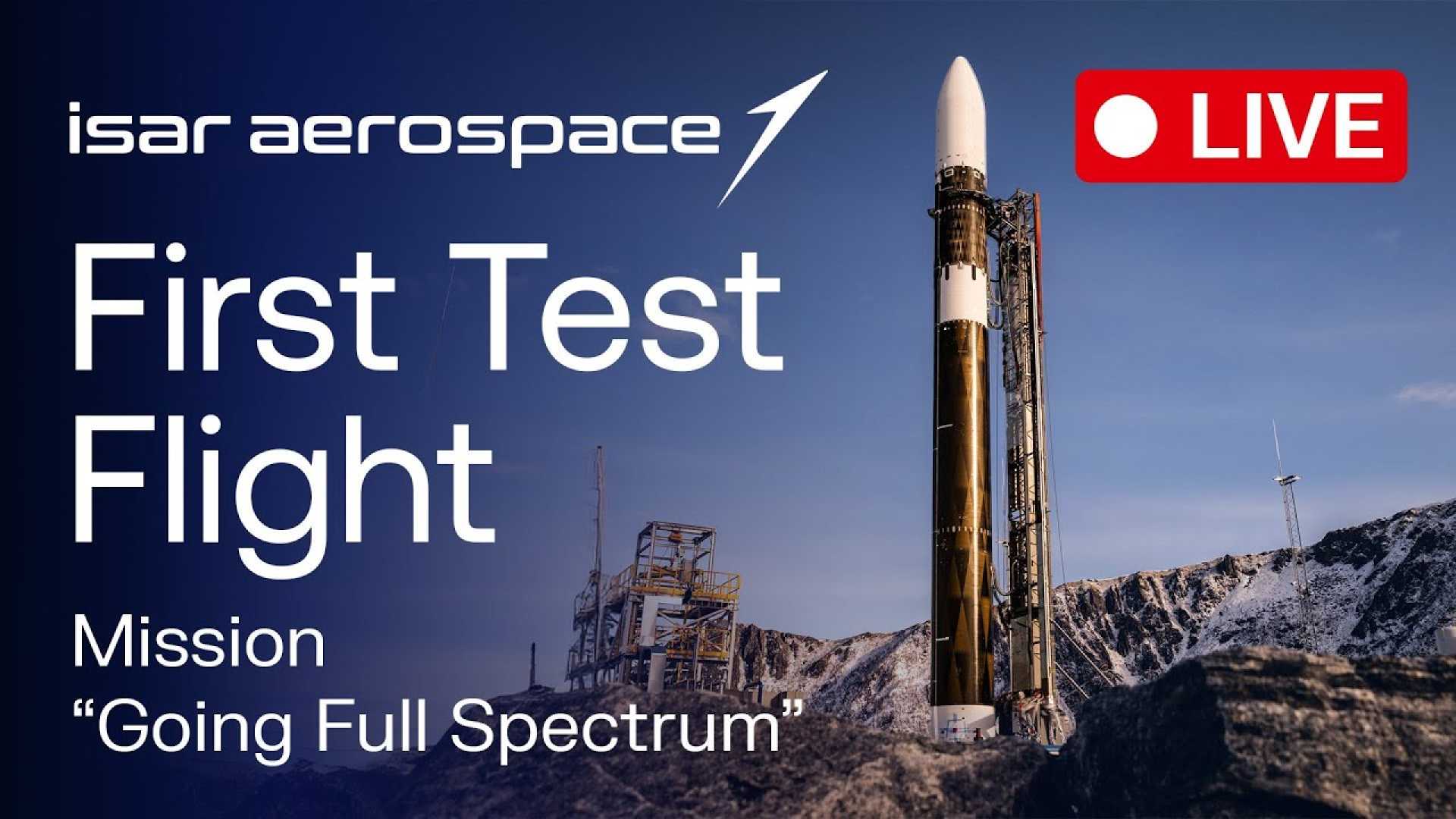News
Isar Aerospace Launches Spectrum Rocket in Historic Orbital Attempt

ANDØYA, Norway — Isar Aerospace, a German aerospace startup, attempted the historic first orbital launch from continental Europe on March 30, 2025, at 10:30 UTC. The company’s Spectrum rocket took off from the Orbital Launch Pad at the Andøya Space Center, aiming to establish a stronger position for Europe in the space launch market.
Earlier launch attempts on March 24 and March 29 were scrubbed due to unfavorable weather conditions, but the rocket’s mission, dubbed “Going Full Spectrum,” was initiated at last. Due to safety protocols, no customer payload was included on this flight.
The Spectrum rocket is significant as it symbolizes Italy’s aggressive move toward expanding its space capabilities. According to Isar Aerospace, this marks the inaugural attempt to launch an orbital rocket from Norway and continental Europe, excluding the British Isles and Russia.
“Reaching orbit is not our primary goal for this test flight; we’re focused on collecting valuable data to inform future missions,” said Isar Aerospace CEO Daniel Metzler, who has expressed a commitment to pushing Europe to embrace new space ventures.
With the Spectrum measuring 28 meters in height and 2 meters in diameter, it can deliver payloads of up to 1,000 kg to low-Earth orbit. The vehicle is powered by nine Aquila engines on its first stage and a single vacuum-optimized Aquila engine on the second stage, utilizing propane and liquid oxygen as propellants, which Isar claims are cleaner than conventional fuel options.
The company has ambitious plans for Andøya Space Center, which can support up to 30 orbital launches annually, while Isar expects its Spectrums to serve the small to medium satellite market.
Charts illustrating the flight events were displayed as onlookers and media watched closely. The flight took the rocket over the Norwegian Sea, rising through the atmosphere until the rocket lost control about 18 seconds into flight and fell back to Earth.
Isar Aerospace stated that more rocket systems are being developed to support future missions, which include future contracts with the Norwegian Space Agency for its Arctic Ocean Surveillance program slated for 2028. Other contracts include future launches for ElevationSpace and Airbus.
The anticipated success of the Spectrum mission comes at a time of renewed interest and investment in European space endeavors, which have faced challenges and delays in recent years. “It’s a crucial time for Europe to reclaim its space autonomy and expand our capabilities,” concluded Metzler.












